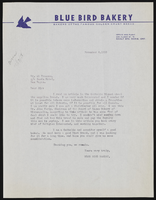Search the Special Collections and Archives Portal
Search Results
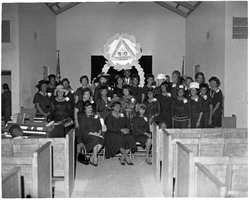
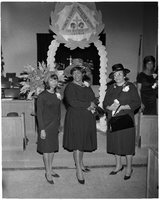
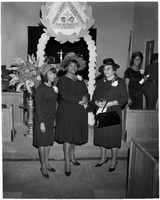
Karin Sporn oral history interview
Identifier
Abstract
Oral history interview with Karin Sporn conducted by Claytee D. White on May 25, 2023 for the Southern Nevada Jewish Heritage Project. Karin Sporn grew up in Germany when her father was a member of Hitler's army. As a young woman, she converted to Judaism, and she shares how it was a difficult path. Much of her study and sacred rituals were done in Israel, and she shares that many signs along the way gave her encouragement, and she learned from others around her in Israel who shared their stories with Sporn. Eventually, her travel business brought her to Las Vegas, Nevada. After selling her and her husband's business, Sporn discusses how she was then free to volunteer for Jewish and civic organizations, and the leisure to sculp and to write her memoir, Just Peek Over the Fence.
Archival Collection

Las Vegas African American Community Conversations, Part 2: Education, Economy and Integration: video
Date
Archival Collection
Description
The Las Vegas African American Community Conversations is a four part, one hour round table conversation with local Las Vegans. They share their powerful stories and great history, with topics ranging from “Migration, Civil Rights, Education, Church, Entertainment and the Early Legal Community”. Part Two: A conversation about “Education, Economy and Integration” MODERATOR- Sonya Horsford Ed.D. PANELISTS- Dr. Esther Langston (Professor UNLV) Verlia Davis-Hoggard (Director of Clark County Social Services-Retired) Idan M. Gaines (Regional Representative for Senator Harry Reid) Dr. Linda Young (President-CCSD Board of Trustees)
Moving Image
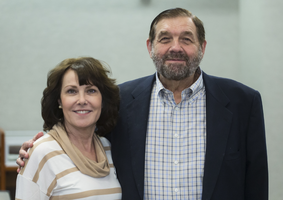
Photographs from Growing Up Jewish in Las Vegas oral history panel interview, February 28, 2016
Date
Description
Photographs from the oral history panel event held by UNLV Libraries for the Southern Nevada Jewish Community Project in February 2016. Panel participants are David Cherry, Michelle Dahan, Jessica Hutchins, Marty Weinberg, Cara Goodman and Heather Klein.
Image
Audio clips from interview with Barbara Raben, February 24, 2015
Date
Archival Collection
Description
Audio clips from an interview with Barbara Raben. In these clips, Raben discusses moving to Las Vegas in 1991 and discovering the Jewish community here.
Sound
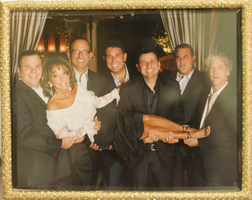
Family photographs from Irwin and Susan Molasky, 1970s-2000s
Date
Archival Collection
Description
Group of family photographs from Irwin and Susan Molasky, including portraits and bar and bat Mitzvahs of grandchildren.
Image

